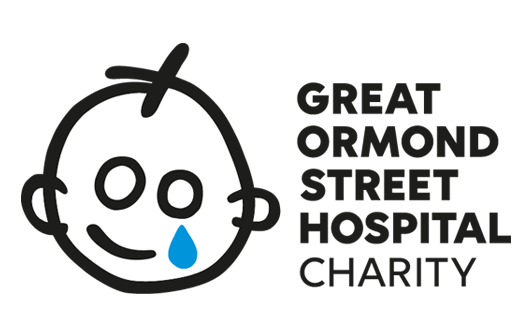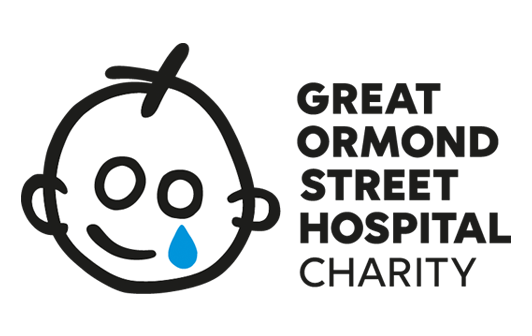
Great Ormond Street Hospital Charity

GOSH Charity helps more sick children with smarter fundraising and richer content
Running a marathon. Organising a coffee morning. Bequeathing a legacy. The Great Ormond Street Hospital Charity inspires supporters all over the world to raise around £100 million worth of funds every year. The charity supports the pioneering work of the London-based hospital, which cares for more than 300,000 children every year.
Although Great Ormond Street Hospital (GOSH) is primarily funded by the UK government’s National Health Service, the money raised by the charity is crucial. “We help the hospital to rebuild and redevelop its site, fund pioneering medical research, buy the latest equipment, and support welfare projects that improve the experience for sick children and their families,” said charity Chief Executive Tim Johnson. “If we don’t meet our annual target, a whole range of mission-critical activities would not get funded.”
Building stronger relationships with personal and digital experiences.
To maximise its fundraising potential, the charity is blazing a trail in donor stewardship.
“We want to deliver richer experiences by providing personalised content and enabling supporters to access their own records on digital channels,” said Johnson. “We also want to be able to share GOSH stories more widely and connect donors and volunteers with one another.”
With more than 350,000 active individual and corporate supporters as well as 2,000 volunteers around the world, building and maintaining relationships is a massive undertaking. And the charity’s old systems were simply not up to the job. “We needed a major operating system and digital overhaul,” said Johnson. “There was a high degree of manual work and it was difficult to access critical information needed to drive the business forward.”
Enabling a rapid business transformation.
To find the right platform and partner to support its digitalisation ambitions, the charity’s leaders organised a two-month proof of concept competition – and Salesforce came out on top. “Salesforce offers more advanced integration options, user interfaces, and reporting tools than other platforms,” said Ian Chivers, the charity’s Director of Finance and Operations.

Working with Salesforce.org, Deloitte, and other specialists, the charity transformed not only its systems but also its processes. “In eight months, we re-engineered our fundraising, financial, and operational activities,” said Chivers. “Salesforce is now how we run our business.”
Smarter management of relationships and payments.
The GOSH charity uses the Nonprofit Success Pack, Service Cloud, and Marketing Cloud to empower more than 250 team members to steward supporter relationships, manage monthly payments for 180,000 regular donations, monitor social media, publish campaign content, and create personalised supporter journeys.
“Journey mapping will radically change our approach to supporter stewardship,” said Richard Bowyer, Director of Marketing & Public Fundraising at the charity. “With Marketing Cloud, we can integrate different platforms for digital and social engagement to not only keep supporters updated with news from the hospital but also facilitate their fundraising efforts.”
Increasing gift values and impact.
The charity has also integrated its ‘grants shopping list’, which means supporters details and donations can be recorded against specific items of charitable expenditure, such as children’s play equipment or medical research initiatives, based on their personal preferences. This integration has cut administration by 50% and will enable the charity to keep supporters updated on how their donations have helped the hospital and sick children.
By personalising supporter communications and improving relationships, the charity hopes to increase average gift values. “All our process improvements and fundraising innovations link back to the same objective: helping Great Ormond Street Hospital to improve care and treatment for as many children as possible,” said Bowyer.
Shifting from static data to dynamic dashboards.
As part of its trailblazing transformation, the charity transferred more than 100 million historic records, which it can now interrogate to drive greater business intelligence. “Although the supporter information we capture hasn’t changed, we can now access and analyse so much more easily,” said Chivers.
For example, the team can compile a holistic view of all supporters across all fundraising streams, which helps improve stewardship. In the past, it took five hours to pull together information on major donor fundraising, which accounts for around 35% of the charity’s annual income. With Salesforce, this static monthly report has been transformed into a 24×7 dashboard.
Hayley Pulford, the charity’s Trailblazer for Dashboards and Analytics, has played a key role in transforming reporting across the organisation. “Capturing and analysing data gives me a great sense of satisfaction,” she said. “Before we deployed Salesforce, I’d have to wait hours to crunch certain datasets, but now it’s all there in an instant.”
Unlocking deeper insights for smarter decision-making.
Better access to better data is making a massive difference to not only the fundraising teams but also the charity’s CEO. As Johnson explained:
“For the first time, I have a single view of the truth about how much money is being raised and where it is coming from. This means I can make decisions based on trusted data and ensure we are on track to hit our fundraising targets.”
Johnson and his leadership team can also access more granular information on marketing campaigns, projects, tasks, and financial performance. “Reports used to require significant effort and were often out of date by the time they were distributed,” said Chivers. “Now, we can see key numbers in real-time via the dashboards in Einstein Analytics.”
Chivers and his finance team can also generate reports in a much shorter timeframe. For example, reports summarising month end results used to take five days to produce; now they are available within 24 hours and also come with drill down capabilities.
Raising more money at a lower cost with better supporter engagement.
As well as making it easier to track donations, the charity also wants to make it easier to receive donations. It has launched an Apple Pay app that enables supporters to make a donation in a matter of seconds. The app was developed and deployed in just three weeks using Heroku and Node.js.
The charity has also used the Salesforce Lightning experience to create a fundraiser app for welcoming guests to VIP events. “Over half of the visitors to GOSH.org use a mobile device,” said Johnson. “We need to take full advantage of mobile technologies going forward. With Salesforce, we have a platform that encourages rapid innovation
Within months of being deployed, Salesforce has become the lifeblood of the charity, underpinning fundraising, governance, innovation, digital engagement, and decision-making.
“We’re changing how we engage with our supporters and how they engage with us,” said Johnson. “With Salesforce, we can raise more money at a lower cost, which means we can give more help to the children, families, and staff of Great Ormond Street Hospital.”